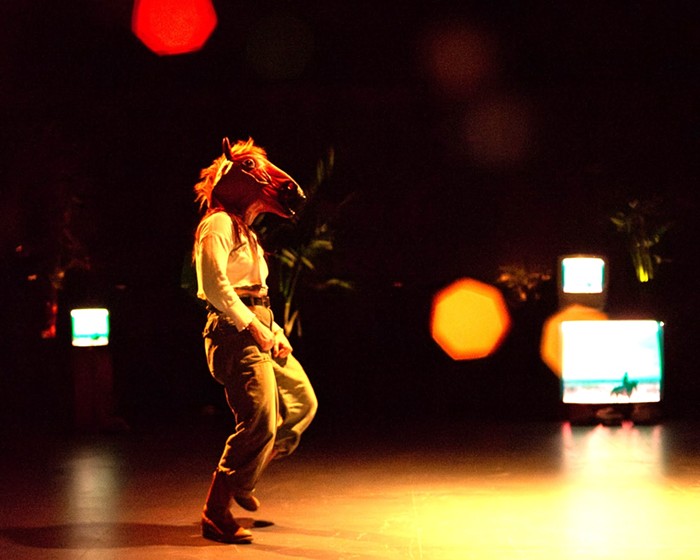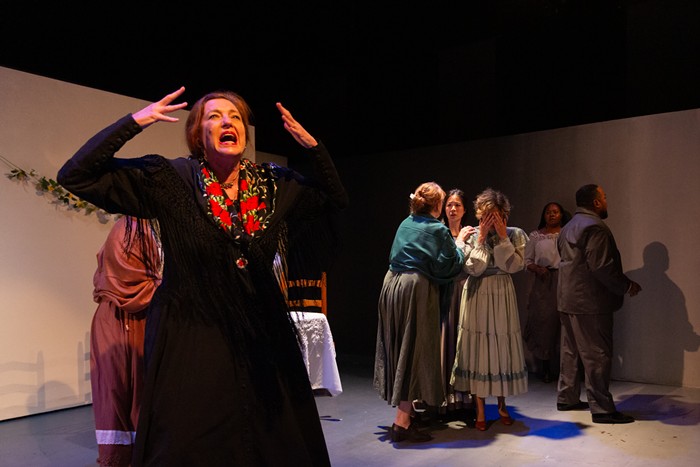IF THERE ARE RAILS to go off of in Amy Herzog's Belleville, Third Rail Repertory Theatre's new production, those rails are a dude, inexplicably home from work, getting caught jerking off by his wife. That's only the first scene. And Belleville finds ways to jump its tracks over and over, each twist and turn as surprising and compelling as the last.
Abby (Rebecca Lingafelter), the wife in that scene, is 28 and clinically depressed (at the very least), but off her medication. In Paris to support her husband, Zack (Isaac Lamb) in his research to fight pediatric AIDS, she's proud of him but somewhat lost, and feeling unmoored, unmotivated, and, well, 28. Zack is doting and affectionate and constantly smoking pot to alleviate some mysterious anxiety.
The way Herzog doles out information about these characters is pointed and deliberate, revealing just enough to keep the screw turning, and there's a threatening edge to the chemistry between Abby and Zack.
This subtlety is demanding, and director Philip Cuomo matches it. Lamb is particularly good at a sort of expressive foreshadowing that just makes you want to tell him everything's okay even before you know anything's wrong. Lingafelter plays Abby with an electric spontaneity; it's a genuinely surprising, shocking performance. There are scenes in this production that feel so natural and real that they almost seem improvised, but before you know it, that minor accident five minutes ago is a major plot point.
It's this attitude that makes Belleville the closest thing to a psychological thriller Herzog has written. Throughout, she retains a sense of humor, though even that gradually darkens. Her other plays, most notably the Pulitzer-nominated 4000 Miles and the related After the Revolution, represent what Herzog is known for—intimate family dramas over nuanced political and philosophical landscapes. She has an incredible knack for conflating the big- and small-picture content of her plays, until each seems to frame the other. You're always seeing personal relationships through the lens of something else, and vice versa.
In the case of Belleville, that something else is complicated. The play's title comes from its setting, a particularly diverse (read: affordable for immigrants) Paris neighborhood known for its own complicated makeup. One of the play's great early moments is a conversation between Abby and her landlord Alioune (Ricardy Fabre), in which Abby learns that Alioune is Senegalese, Muslim, married with two kids, and 25.
It puts Abby's late-twenties ennui into context. Suddenly, her problems are entitled problems. It's a small scene, and compared to the bigger, louder moments to come, it's almost nothing. But it moves the ground under the story just enough to color the rest of the play. Alioune and his charismatically unimpressed wife Amina (Chantal DeGroat)—who deliver many of their lines in untranslated French—have little patience for the drama unfolding between Abby and Zack, and the dueling immigrant stories provide an undercurrent of competing struggles.
In typical Herzog fashion, Belleville is simultaneously about mental illness, American hegemony, and a young marriage falling apart. The Third Rail ensemble follows Herzog's signature conflation to its inevitable conclusion: Marriage is jingoism; love is madness.




















